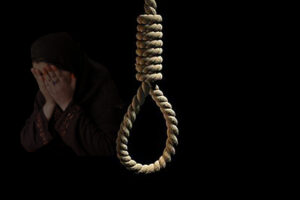KABUL (SW) – In the past year and a half, the Islamic Emirate has failed to address concerns of the international community by imposing additional restrictions on women in Afghanistan, which has further isolated the country on the global stage, believe experts.
According to experts, Afghanistan’s absence from the international stage will lead to a dark and uncertain future for Afghan citizens, especially women.
Mehboob Mohaq, an expert on international relations, says that now, Afghanistan is not the focus of global discussions and any interaction of the world with the Islamic Emirate is dependent on the observance of human rights issues in Afghanistan, and if the Islamic Emirate cannot meet the expectations of the international community, it will remain in political isolation.
“The recent decisions of the Islamic Emirate have postponed the recognition of the current government and isolated Afghanistan, and if we cannot interact with the world, this situation will turn into a bigger crisis that is unmanageable. The Islamic Emirate needs to interact with the world to gain legitimacy and fight terrorism”, he said.
Hamid Mahmoudi, another expert on international relations, said that governments are accepted in the international system to the extent that they respect and preserve human rights values. “Deprivation of women from education and work has put Afghanistan more in international isolation and shows an unworthy face of a nation. In such a situation, Afghanistan cannot be accepted as a member of the international community. It creates a fragile state, which can threaten internal stability.”
After the order of the Ministry of Economy of the Islamic Emirate to stop the work of women in domestic and foreign non-governmental organizations, most of the organizations that were active in the field of providing humanitarian aid stopped their activities. The United Nations Women’s Division announced that 86 percent of 151 women-led organizations focused on their situation have stopped or severely limited their activities.
According to the information of the United Nations Children’s Fund (UNICEF), the ban on women’s work has caused the Afghan economy to lose 500 million dollars. This means that the annual gross national income of Afghanistan will decrease by two and a half percent.
However, economic experts believe that the exclusion of women from work has adverse effects not only on the economy, but also on the society.
Lal Zazi, an expert on economic issues, said: “Most families do not have a head, and it is the women of the family who provide for their needs. When women cannot work, these families are in an economic crisis, and the long-term consequences of such a situation are dangerous for a society.”
Similarly, Abdulwafi Naibzai, another expert on economic issues, says: “Women’s economic activity strengthens small businesses. When women work, they can support their families, which increases the family’s income level, and as much as the family’s income level increases, the society’s economy grows as well; But if the situation is reversed, poverty and unemployment will increase and economic foundations will collapse.”
Before the establishment of the Islamic Emirate, women competed on an equal footing with men, and due to the importance of their presence in society, they worked in many political and administrative positions.
The imposition of restrictions and the exclusion of women from important social contexts not only removed them from the decision-making circle, but also caused an increase in forced marriages, family violence, mental illness and educational concerns.
Experts in social affairs say that women’s exclusion from education, study and work, in the long run, leads to a decrease in the level of literacy, gender equality and patriarchy in the society, which helps to paralyze the society.
Zia Nekzad, a social affairs expert, says: “it is terrible when children in the family see that men have the right to work and study and can reach somewhere, but women should only be housewives, they do not have the right to work or study. This issue is unconsciously engraved in the minds of the generations that grow up in that society, and these children grow up with this belief.
ENDS






